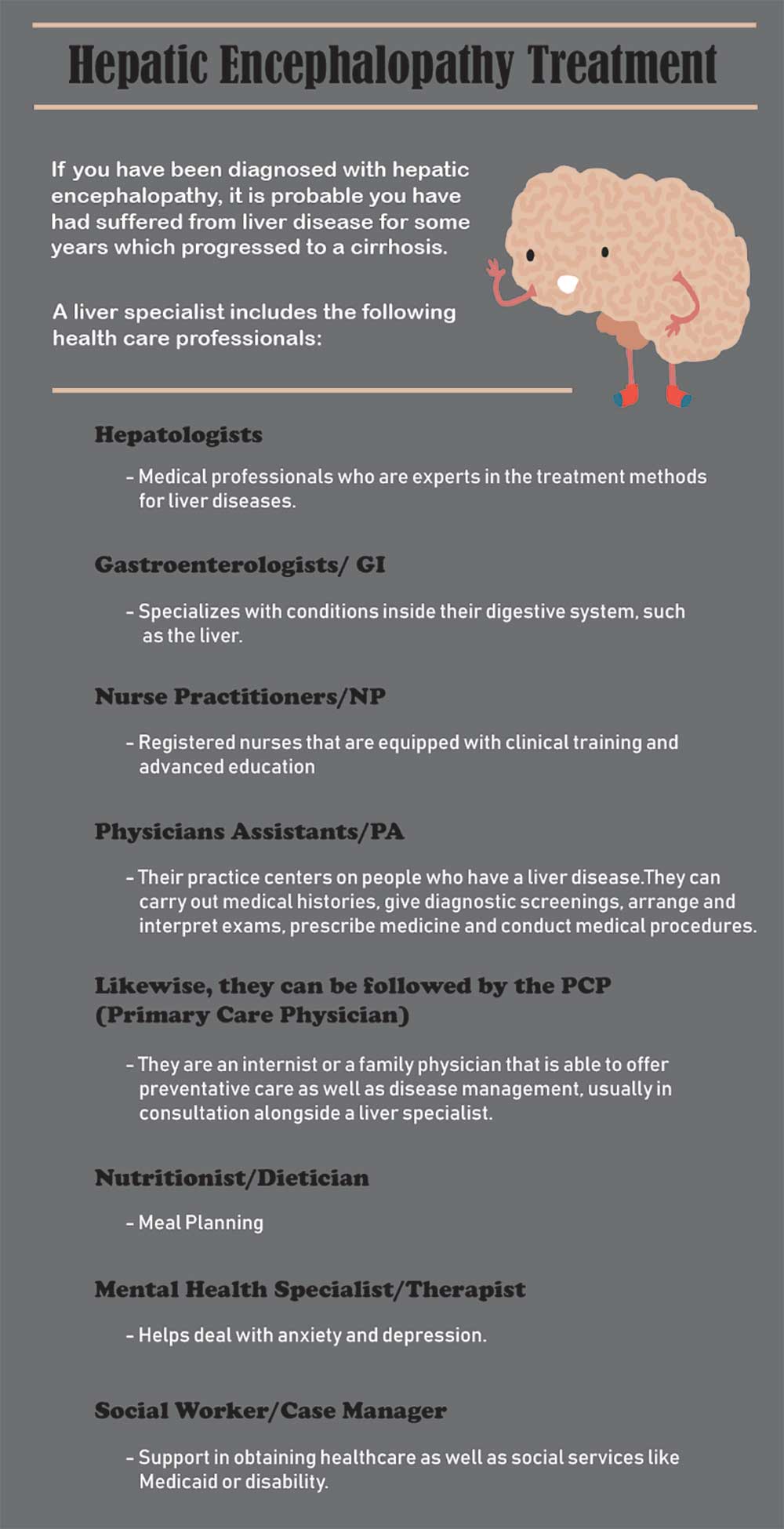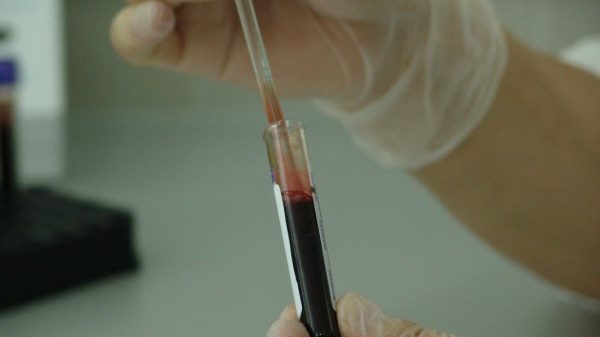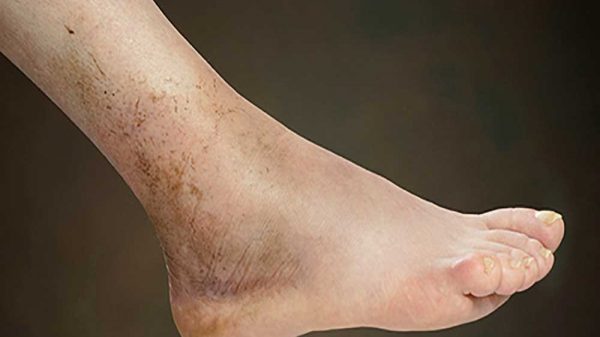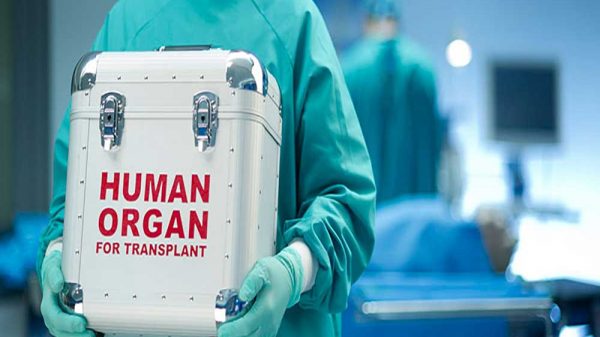Hepatic encephalopathy is a syndrome that is observable among patients that have cirrhosis. Hepatic encephalopathy falls under the spectrum of neuropsychiatric problems among individuals suffering from liver dysfunction, without including brain disease. Liver function examinations check for elevated enzyme levels. A raise in enzymes suggests stress on the liver or alternatively liver damage. Inform your doctor in case you suffer from liver disease or kidney disease. The symptoms you are encountering together with your medical background can oftentimes be adequate to detect hepatic encephalopathy. But is Hepatic encephalopathy treatment possible?
Using treatment, this syndrome is usually reversible. In fact, full recovery is a possibility, especially if it was induced by a correctable cause. Then again, men and women with a chronic liver condition are susceptible to upcoming attacks of encephalopathy. Several require prolonged treatment. The prevalence of encephalopathy serious enough to result in hospitalization associates with survival possibility of 42% during one year of follow-ups, and at 23% for three years. Roughly 30% of sufferers suffering from the final stage of liver disease suffer from significant encephalopathy, drawing near to coma. Continue reading to learn more about hepatic encephalopathy treatment which is crucial to aid you if you have this syndrome specifically.
Hepatic Encephalopathy Treatment
If you have been diagnosed with hepatic encephalopathy, it is probable you have had suffered from liver disease for some years which progressed to cirrhosis. This means that you have most likely been cared for by a liver specialist. A liver specialist includes the following health care professionals:
- Hepatologists: medical professionals who are experts in the treatment methods of individuals that have liver diseases.
- Gastroenterologists/ GI: medical professionals who specialize in care for men and women with conditions inside their digestive system, such as the liver.
- Nurse Practitioners/NP: their practice focuses on individuals having liver disease. Nurse Practitioners are already registered nurses that are equipped with clinical training and advanced education, allowing them to adopt several duties formerly taken on only by medical doctors. They are allowed to provide a wider range of care solutions, such as the diagnosis and the handling of common to more complex medical problems.
- Physicians Assistants/PA: their practice centers on people who have liver disease. PAs exercise medicine subject to a physician’s supervision. They can carry out medical histories, give diagnostic screenings, arrange and interpret exams, prescribe medicine, and conduct medical procedures.
- Likewise, they can be followed by the PCP (Primary Care Physician). They are an internist or a family physician that is able to offer preventative care as well as disease management, usually in consultation alongside a liver specialist.
At times, the patient can be referred to the rest of the health care team members like the following:
- Nutritionist/dietician for understanding concerning food intake plus meal planning.
- Mental health specialist/therapist to help one deal with mental issues like anxiety and depression.
- Social worker/case manager to support in obtaining healthcare as well as social services like Medicaid or disability.
- Because hepatic encephalopathy is a complex condition, the best approach is a multidisciplinary approach for its management.
What To Do After You’ve Been Diagnosed With Hepatic Encephalopathy?
Being challenged with an HE diagnosis is quite overwhelming to accept, and because it affects focus, memory, and thinking performance, it is best to take a member of the family or a friend to the appointment. Always keep to mind that HE symptoms or changes are very minimal where your family or friends can observe them before you can. So it is recommended to have somebody alongside you to help fill the blanks on the medical background and recent symptoms.
Checklist
Below are some preparatory tips to do so you can have the most productive time spent with a healthcare provider. Follow this checklist:
- Write down whatever symptoms you have been experiencing, including those that your friends or family members have observed.
- Include dilemmas associated with your work efficiency or driving skills, even if you do not believe they’re correlated to your condition.
- Take a checklist of each medicine you are currently taking. Include things like vitamins or supplements, home remedies, as well as herbs.
- Prepare all your queries so you do not forget to inquire about something relevant.
Therapies
Therapies usually employed concerning Hepatic Encephalopathy Treatment (HE) differ depending on several factors such as:
- The precipitating reason, or triggering incident
- Your precise symptoms
- The severeness of this disorder
- The severeness of the disease of the liver
- Your age as well as your overall health
The initial step will be identifying, treating conditions like gastrointestinal bleeding, contagion, kidney dysfunction, and specific drugs. Remedy options for HE consist of drugs to relieve infections, medicines or approaches to regulate bleeding, preventing the usage of drugs that may be able to trigger a particular episode that will arise, or alternatively any recommended treatment solution for kidney issues.
If HE exhibits itself as an urgent condition requiring a must hospitalization, it may be necessary to go life support for circulation and breathing assistance, and especially when loss of consciousness is involved. When these precipitating factors become addressed, remedies are geared toward lowering a patient’s ammonia levels as well as their blood toxins. Because these particular toxins originally develop starting your gastrointestinal GI system, solutions are focused on the gut for the reduction then elimination of these toxins. Two types of medications are used for this: lactulose (a type of synthetic sugar), then antibiotics. These two medications used most regularly to address HE may frequently be paired together to act as a cure.
How do the medications work?
Lactulose
- Works by bringing water from the body towards your colon. This then softens stools, causing increased bowel movements. It flushes toxins away from the system.
- Diminishes the levels of ammonia in the blood through bringing the ammonia towards the colon wherein it is taken out from your body.
- It helps throughout HE recurrences as well as diminishes its occurrence.
Antibiotics
- Work by blocking the growth of specific bacteria that create toxins coming from your own digested food. By lowering these types of bacteria, antibiotics minimize the levels of toxins released in the body.
- Help to counter HE recurrences and also minimize the chances of hospitalization.
- A couple of various antibiotics are made use of to address HE. Your healthcare professional will decide on which one be best suited for you.
Now you are more knowledgeable about hepatic encephalopathy and hepatic encephalopathy treatment.
























